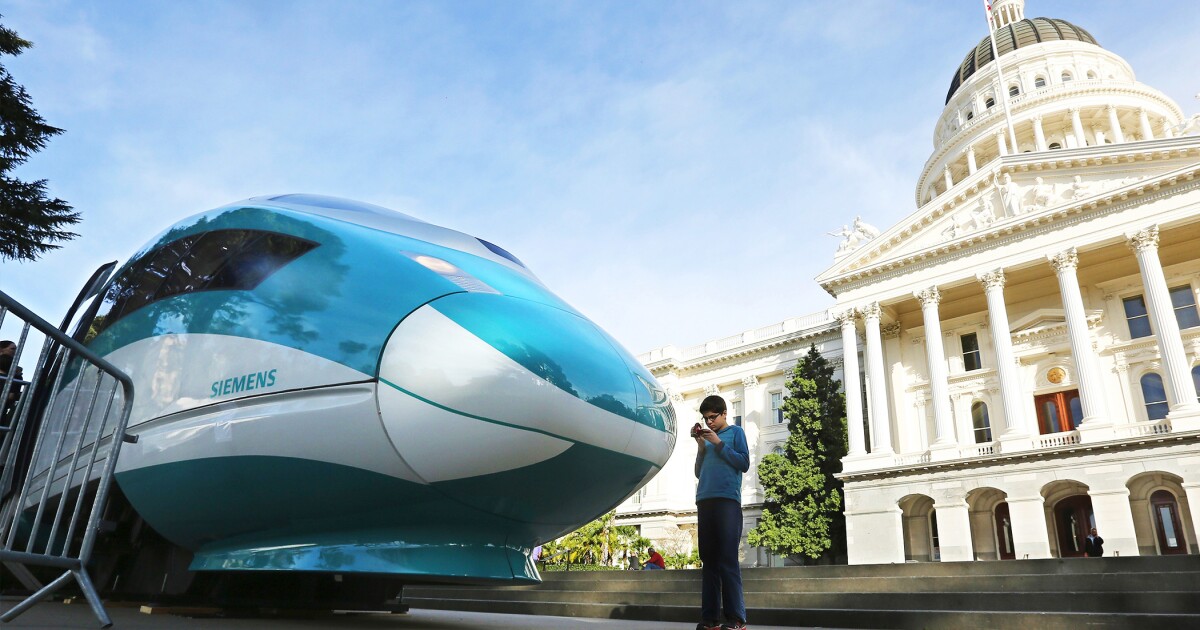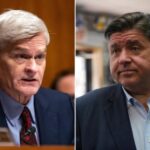

Political handicappers and bettors give Republicans a clean shot at taking back control of the House of Representatives in November’s midterm elections. Victory would give current House Minority Leader Kevin McCarthy (R-CA) the inside track to become the next speaker of the House. Among other things, that would signal bad news for future high-speed rail funding.
RealClearPolitics in late September predicted exactly 218 seats to be won by Republicans, a bare majority in the 435-member chamber. CBS News at the same time said House Republicans would win 223 seats. University of Virginia professor Larry Sabato’s “Crystal Ball,” out of the school’s Center for Politics, landed on a 227-208 Republican majority House over Democrats. And Fox News predicted House Republicans would end up with a 13-seat House majority, holding 231 seats to the Democrats’ 204.
People who are wagering on the elections mostly agree. “Bookies have therefore chosen to cut their odds on a Republican majority here, from 2/5 to 2/7. That now suggests a 77.8% likelihood of the Democrats losing control of the lower chamber,” reported Gambling.com.
McCarthy has been House minority leader since 2019. Before that, he was majority leader under House Speakers John Boehner (R-OH) and Paul Ryan (R-WI). He’s unusual for national Republican leadership in that he’s from California, a deep blue state — the nation’s most populous — where in 2020, President Joe Biden crushed former President Donald Trump by a nearly 2-to-1 margin.
Yet the state does retain some heavily Republican districts. McCarthy, who lives in Bakersfield, has always comfortably crushed his opponents. He’s done so over the past decade in the southern San Joaquin Valley 22nd Congressional District (and a similar district for his first six years in the House after first being elected in 2006). And McCarthy has an even safer district in the incoming 20th District, covering the eastern Central Valley from the Bakersfield to Fresno areas. There, in 2020, Trump would have thumped Biden 61.3% to 36.4%.
McCarthy takes an active interest in the political machinations of his state, which of course include the famously over-budget and long-delayed high-speed rail line that was supposed to deliver passengers from Los Angeles to the Bay Area in under three hours. Rather than being the little engine that could, McCarthy’s office mocked in an April 2021 news release, California High-Speed Rail was “the Boondoggle That Couldn’t.”
“In another disappointing, yet unsurprising, turn of events, the initial segment of the California High-Speed Rail project has been delayed by an additional two years, now to 2025,” the McCarthy news release said. “This news comes just ONE WEEK after a business plan with a 2023 completion date was adopted.”
McCarthy’s office called the Golden State’s high-speed rail project “one of the most expensive failures in State history [that] could cost $100 billion, more than three times the $33 billion that was initially estimated.”
California voters OK’d the high-speed rail project in 2008 with a likely delivery date of 2020. Currently, even the 2025 date is iffy.
“As a comparison, the Transcontinental Railroad was built in 6 years almost completely by hand and over a century and a half ago,” McCarthy’s office said.
The release bashed Biden and held up McCarthy’s own bill as a corrective.
“Somehow, President Biden has found California’s mismanagement of high-speed rail inspiring, and seems to be signaling that a $929 million grant, which was rescinded by the previous Administration for the California High-Speed Rail Authority’s failure to deliver on its contractual obligations, could be reinstated,” McCarthy’s office said.
In contrast, McCarthy had introduced the RAILWAY Act, which aimed to “[repurpose] certain unused federal funds for the California High-Speed Rail project to improve our State’s ailing water infrastructure, so that California’s nearly 40 million residents could actually see some benefits from its tax dollars.”
Would a Speaker McCarthy make it difficult in Congress for high-speed rail going forward? Reason Foundation transportation policy analyst Marc Scribner thinks the answer is yes but that high-speed rail probably wouldn’t have had clear tracks anyway anytime soon.
“It would make new federal high-speed rail subsidies even more unlikely, but Congress probably won’t seriously consider major new funding for any surface transportation modes until debate begins on the next reauthorization due by October 2026,” Scribner told the Washington Examiner.
Large-scale high-speed rail exists in some other countries, yet it has “always had very limited national support and isolated parochial support in the U.S.,” Scribner said. Even that “limited base of support has shrunk as costs and delays continue to escalate in California, which should have been the example supporters could showcase.”
He added, “Even the Biden administration, which has championed passenger rail more than most past administrations, has not focused much on high-speed rail. It would be hard to imagine the next administration doing more to advance high-speed rail when demand for it doesn’t exist and the political risks are high.”







